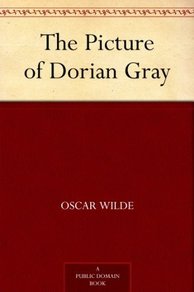
I’ve read reviews or introductions of this book that say Dorian Gray was a sociopath who sold his soul to the devil for eternal youth. I don’t think he did. He wished for something and it came true. It wasn’t because he thought things through, believed it would happen and said, “Okay, it’s a deal.”
I don’t think he was a sociopath. This is what makes the tale a horror story. What if supernatural forces took away your humanity and made you heartless? What if you couldn’t control it?
It seemed to me that Dorian did not start out a bad person, and even though his actions became abhorrent, especially when he committed murder, he seemed possessed. The fact that he wanted to change at the end of the story, whether he could or not, made me think he was more human than psycho. Does a sociopath ever desire to be different? Would a sociopath fear a painting where his or her sins are visible? I think he or she might relish in such a thing and smugly think, “Look what I’m getting away with.” Dorian cringed at the sight of the painting and not just out of vanity.
Then there is Lord Henry Wotton and his witty bull crap. I kept thinking, if you are a person with a high IQ and you say outrageous things with complete confidence, slipping in something that might be true here and there, will people start to believe everything you believe is correct?
Here are a few quotes from the book, some from Lord Henry, some from Wilde’s narrative. In a couple of places I’ve added my thought in parentheses:
“There is only one thing in the world worse than being talked about, and that is not being talked about.” (I’m thinking Miley Cyrus here.)
“When one is in love, one always begins by deceiving one's self, and one always ends by deceiving others. That is what the world calls a romance.”
“Children begin by loving their parents; as they grow older they judge them; sometimes they forgive them.”
“Nowadays most people die of a sort of creeping common sense, and discover when it is too late that the only things one never regrets are one's mistakes.”
“Never marry at all, Dorian. Men marry because they are tired, women, because they are curious: both are disappointed.”
“Those who are faithful know only the trivial side of love: it is the faithless who know love’s tragedies.”
He was gathering his harvest while it was yet spring. (Made me think of the people who envy another’s success even when that other person earned his or her success through years of practice and time and money spent, while the envious did nothing but wish and hate because of their jealousy. The jealous want a harvest either without ever having sown or they think they've earned it too soon.)
“There is a luxury in self-reproach. When we blame ourselves, we feel that no one else has a right to blame us.” (I have to admit I’ve done this.)
This book does have weaknesses and I think it is in the storytelling. Okay, how do you judge a book written in another era for people of that time? Some references in the story, I didn’t understand and that’s when I lost interest. Obviously, Oscar Wilde was well read and very smart, so this is no doubt a frailty of mine. I kept thinking, however, they remake movies. Someone should rewrite this in today’s contemporary style. I’m not talking theme, I mean the whole story. I think it would be fascinating.
Instead of all the passages about how Dorian passed his time with literature and art, I would have liked to see more of Dorian’s sins in the making. It seemed to me that a lot, if not most, of the horrible actions he took were vaguely referenced. So, for these last two reasons I gave this book 4 stars out of 5.

 RSS Feed
RSS Feed
